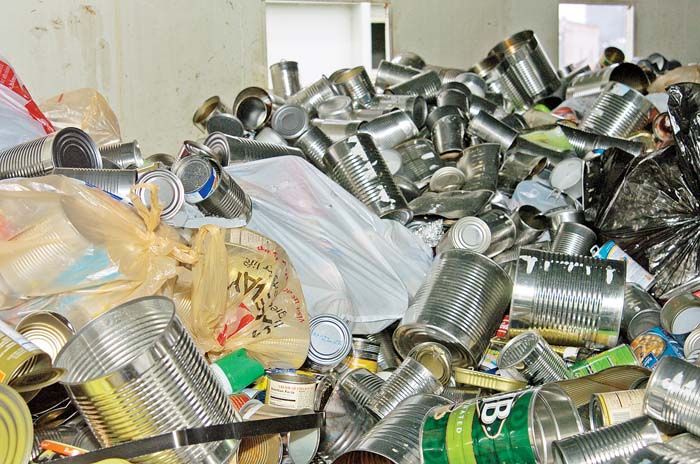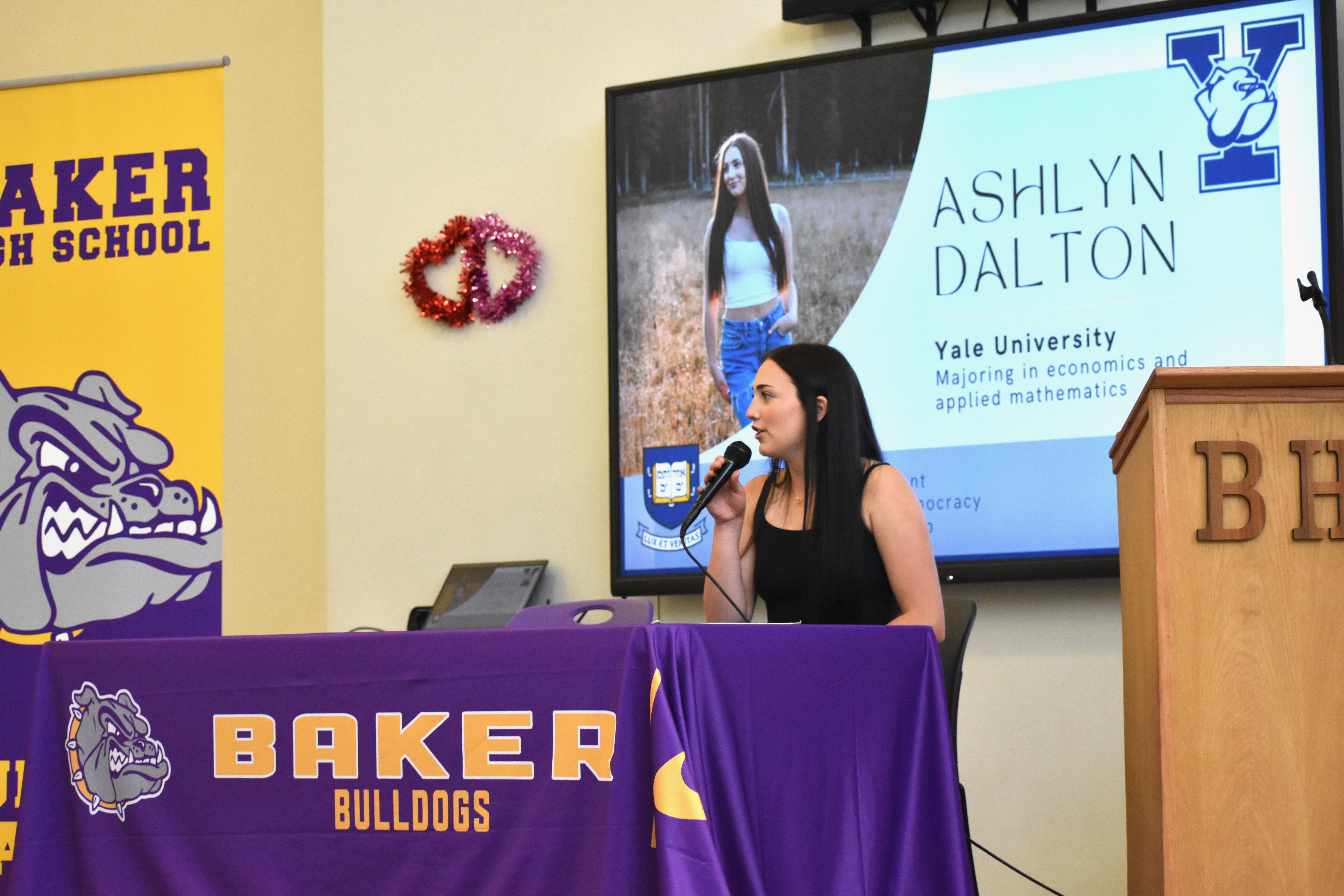Baker Sanitary Service might add curbside recycling in 2025
Published 7:13 am Monday, July 8, 2024

- Starting some time in 2026, Baker City residents likely will be able to recycle tin cans and many other items by tossing them in a rollcart picked up at their home, rather than having to bring the materials to Baker Sanitary Service's recycling center.
Baker City residents might be able to recycle cardboard, milk jugs, plastic bottles, glass jars and other items by dropping them in rollcarts at their homes, rather than having to take them to Baker Sanitary Service’s recycling center, possibly starting in the second half of 2025.
The Oregon Legislature in 2021 passed a law that imposes new requirements for curbside recycling starting July 1, 2025.
Without weekly curbside recycling, Baker City would struggle to meet the state requirements, particularly since the city surpassed 10,000 residents in the 2020 federal census, City Manager Barry Murphy wrote in a report to city councilors that’s part of their packet for their regular meeting July 9.
Murphy said on July 10 that councilors endorsed the proposal and tasked him with working with Baker Sanitary Service to update the company’s franchise agreement with the city to include curbside recycling.
Baker City is one of just six Oregon cities with a population of more than 4,000 that don’t offer curbside recycling, according to a letter to the city from Stephen Henry, president of Baker Sanitary Service.
Henry said customers, particularly those new to Baker City, often ask about the possibility of adding curbside recycling.
Baker County has failed to meet its state recycling target of 25% of the total weight of trash produced in the county, averaging about 19% over the past three years.
Henry said on July 8 that it has been harder to meet the state target since China stopped taking plastic items several years ago.
In his letter to the city, Henry proposed to expand weekly curbside recycling, possibly in the second half of 2025, to all residential and commercial customers within Baker City. Henry said Baker Sanitary doesn’t plan to offer curbside recycling outside the city limits.
Customers, who now have a 65-gallon trash rollcart that’s emptied once a week, would have a second, larger rollcart — Henry suggests a 90-gallon version — where they would place recyclable items. Both rollcarts would be emptied once per week.
Customers would not need to separate recyclable items, Henry said. They would be able to recycle more items than are accepted now at Baker Sanitary’s self-serve recycling station at 12th and Campbell streets, just east of the railroad tracks, including mixed paper and more types of plastic containers. The recycling station would remain open after curbside collection starts, Henry said.
Customers would not be able to place large metal items, spray cans, motor oil and some other products in the curbside rollcarts, Henry said.
Baker Sanitary will need to charge more to add curbside recycling, Henry said.
Although he doesn’t have a firm figure, Henry said the cost hike is likely to be in the 30% range. The current rate for residential customers is $20.90 per month.
Baker Sanitary likely would start curbside recycling after July 1, 2025.
The timing is fortuitous, Henry wrote in his letter to the council, because the state is offering financial aid to help companies such as Baker Sanitary buy trucks and other equipment needed to start curbside recycling.
The cost of adding curbside collection is a challenge that Baker Sanitary officials have mentioned in previous discussions with the city about recycling.
“Because funding is available to procure route trucks, carts, and expand our depot to meet material requirements, now is the most economically beneficial time for Baker City to implement on-route recycling collection,” Henry wrote in his letter to the council. “This would enable Baker City to consistently meet statewide recycling requirements, as well as raise our overall recovery rate to meet county recycling goals.”
Henry said the state might also compensate companies for most, if not all, of the cost of hauling recyclable materials to a sorting plant. He said Baker Sanitary likely will truck recyclables to Portland.
The state grants would become available July 1, 2025, Henry said. Because the wait time for new trucks has been running about a year, he said it’s possible that Baker Sanitary wouldn’t be able to start curbside recycling in Baker City until 2026.
The Baker City Council in January 2023 talked about the 2021 state law, and the likelihood that curbside recycling would be required in the near future.
Railroad quiet zone
In other business during the July 9 meeting, councilors will hear an update about a campaign spurred by a local group to make Baker City a quiet zone, in which Union Pacific freight trains wouldn’t sound their whistles at five public crossings in the city unless the engineer decides it’s necessary.
A previous council in 2022 agreed to pursue the quiet zone designation through the Federal Railroad Authority and Union Pacific, provided the local group raise all the money needed to install new gates at the five crossings.
Both Pendleton and La Grande have quiet zones within their city limits.
According to a report to councilors for the July 9 meeting, the city, using donated money, has submitted construction drawings for the crossing improvements to Union Pacific, but the railroad recently requested a new agreement that could cost an additional $70,000. Murphy wrote in a report to councilors that the city might be able to negotiate a reduction in that cost.





